Wagner Group chief Yevgeny Prigozhin denies insurrection was attempt to overthrow Vladimir Putin
The Wagner leader defends his short-lived insurrection as Kremlin takes steps to reassert control following most serious challenge to Vladimir Putin’s leadership.
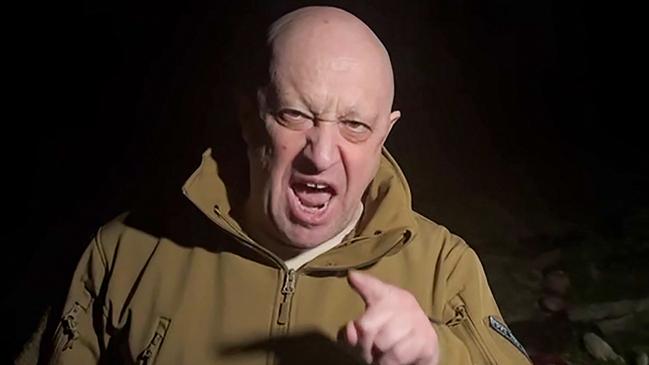
The leader of an abortive military mutiny, Yevgeny Prigozhin, defended the short-lived insurrection and claimed overnight (AEST) he wasn’t trying to oust President Vladimir Putin of Russia, as the Kremlin took steps to reassert control over the country following the most serious challenge to Putin’s authority in his 23 years in power.
Prigozhin defended his actions in an 11-minute audio clip posted by his press service, saying Wagner’s aim wasn’t to overthrow the government but to protest the way the paramilitary group was being treated. Russian state media reported that the Wagner leader, whose whereabouts is unknown, is still under criminal investigation.
Following the insurrection, Russian authorities took pains to show a return to normal life and that they were in control of the situation. Putin held phone calls with the leaders of Iran and Qatar and the Kremlin posted a video address by the president to the participants in a youth industrial forum. He didn’t address the mutiny.
Russian Defence Minister Sergei Shoigu, whose removal was a key demand of Prigozhin, was also seen in a video published Monday for the first time since the Saturday uprising, when armed Wagner columns marched toward the capital, briefly threatening to plunge Russia into chaos.
Russian military analysts said the short video clip posted by Russia’s Ministry of Defence, showing Shoigu inspecting a command post for the war in Ukraine, was a sign that Russian President Vladimir Putin probably wouldn’t remove the defence minister in the immediate future.
The 47-second video clip was published without sound and it wasn’t clear when it was filmed.
Prigozhin, whose troops have played a key role in the fighting in Ukraine, called off his mutiny on Saturday after reaching a deal with the Kremlin, brokered with help from Belarusian President Alexander Lukashenko. Prigozhin’s troops were given a general amnesty, and Russia’s state-run media reported that Prigozhin would decamp to Belarus.
The exact terms of the deal remained murky, however. The announcement Monday that Prigozhin was still facing a criminal investigation for mutiny appeared to contradict Kremlin spokesman Dmitry Peskov, who told reporters over the weekend that a criminal case against Prigozhin would be dropped. Prigozhin’s ultimate fate was unclear on Monday as were his whereabouts or the future of Wagner’s 25,000 heavily armed troops.
Russia’s military leadership, which failed to stop Wagner’s rapid seizure of the southern city of Rostov-on-Don or its advance toward Moscow, could yet face a shake-up. In his audio clip, Prigozhin said that the ease with which Wagner was able to march toward Moscow showed serious problems in the Russian armed forces.
The 62-year old — a former convict-turned caterer-turned warlord — defended his uprising, saying he acted to protect Wagner from growing hostility from the government, including moves to absorb the group into the armed forces and launching a deadly missile strike against it. The Russian military has denied a strike.
He said that Wagner aborted its march toward Moscow because it didn’t want to kill Russian soldiers.
“The goal was to prevent the destruction of Wagner and bring responsibility to people who made a lot of mistakes” during the Ukraine war, he said. “We determined that the demonstration up to that point was sufficient.”
Though he didn’t elaborate on the future of his organisation, he said that Lukashenko had offered to find ways for Wagner to keep working legally.
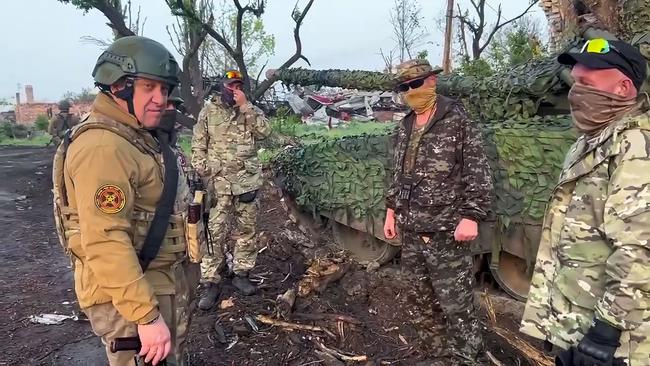
Meanwhile, Russian authorities didn’t appear to be making any immediate effort to disarm or disband Wagner, including the columns of troops that took part in the mutiny.
State news agency TASS reported Monday that Wagner recruitment centres in the cities of Tyumen and in Novosibirsk, which were closed over the weekend, had resumed work.
Prigozhin was last seen in public on Saturday night as he left the headquarters of the Southern Military District in Rostov for an unknown destination. His press office told a Russian TV network over the weekend that he “will answer questions when he will have access to proper communications.”
Western officials were parsing the contradictory signals from Moscow.
“It’s unclear what happens with the different actors,” German Foreign Minister Annalena Baerbock said Monday, adding that the West won’t get involved in what she called a “domestic political power struggle” in Russia. “It’s obviously just one act in this Russian play.”
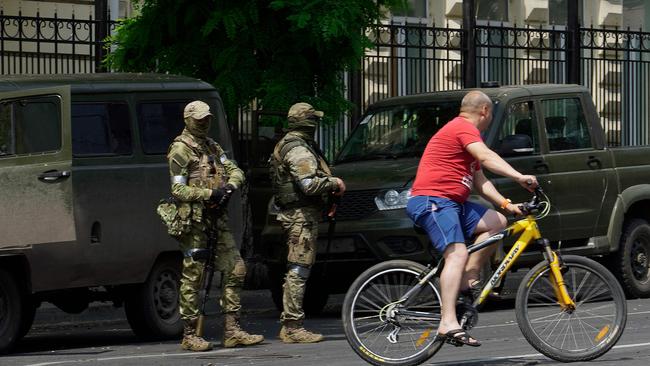
UK Defence Secretary Ben Wallace said the weekend uprising in Russia wasn’t “a massive derailment of the Kremlin.”
“The Russians are still fighting in Ukraine and the Russian generals are still in post. But Wagner is now a spent force,” he said at a Royal United Services Institute conference in London. “The main damage is that Prigozhin has laid bare to Russians the flawed reasons for invading Ukraine,” Wallace added.
During his reign of more than two decades, Putin has responded to political threats by doubling down on repressive measures, and accusing the West of fomenting rebellion inside Russia.
In a possible harbinger of a campaign to come, Foreign Minister Sergei Lavrov said Monday that Moscow is investigating whether Western intelligence services were involved in Wagner’s revolt, without offering any evidence of a foreign role.
Western governments have called the Wagner-Moscow clash an internal Russian matter.
Russian Prime Minister Mikhail Mishustin on Monday said the country had seen a challenge to its stability and called for unity.
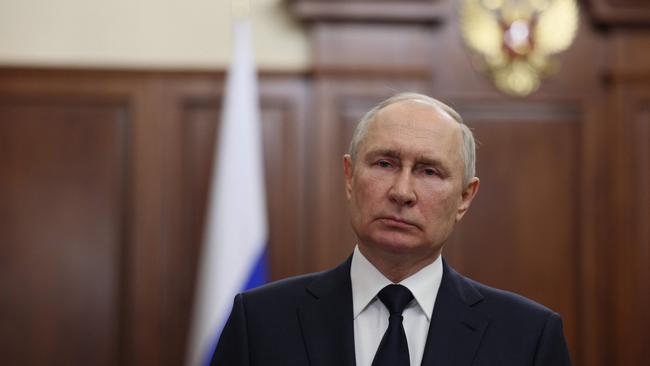
Moscow’s mayor lifted the counter-terrorism measures he had imposed as the Wagner troops made their way toward the capital on Saturday.
Authorities in Rostov on Sunday said they were repairing 10,000 square meters of roadway damaged by tanks during the paramilitary group’s advance.
In a post on Telegram accompanying the Shoigu video on Monday, the defence ministry said the minister paid special attention to the organisation of support for frontline troops in Ukraine and the creation of conditions to ensure their safe deployment.
Wagner’s abortive march on Moscow followed a long feud between Prigozhin and Shoigu, whom the Wagner leader repeatedly accused of incompetence and having no regard for the lives of his troops.
As Prigozhin escalated his criticisms of Russia’s military leadership, the Defence Ministry tried to bring Wagner under control, ordering all private paramilitary groups to sign government contracts by July 1. The move threatened Prigozhin with the loss of his power base.
In his audio recording on Monday, Prigozhin said that most Wagner fighters didn’t want to join the ministry as they didn’t want to be used as cannon fodder.
During the revolt, Wagner’s forces shot down six Russian helicopters and an IL-22 airborne command-centre plane, killing 13 airmen, according to Russian military analysts. Damage included bridges and roads that Russian authorities destroyed as they tried to stop Wagner’s march, as well as a jet-fuel depot that was hit and burned down in the city of Voronezh.
WALL STREET JOURNAL



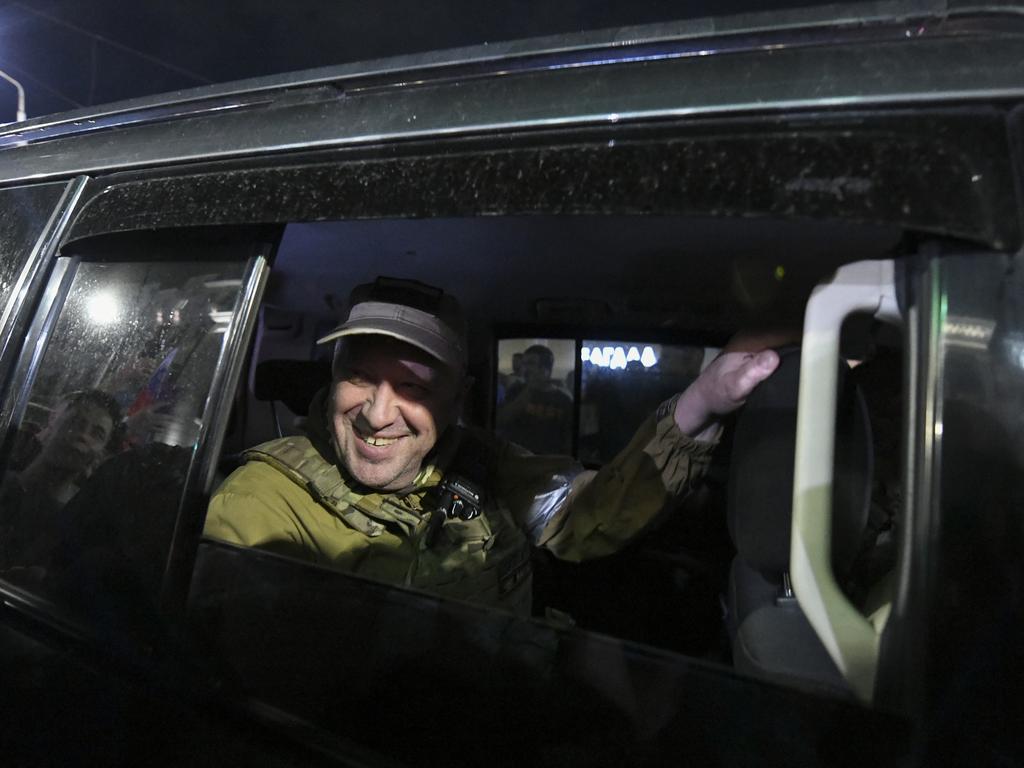


To join the conversation, please log in. Don't have an account? Register
Join the conversation, you are commenting as Logout